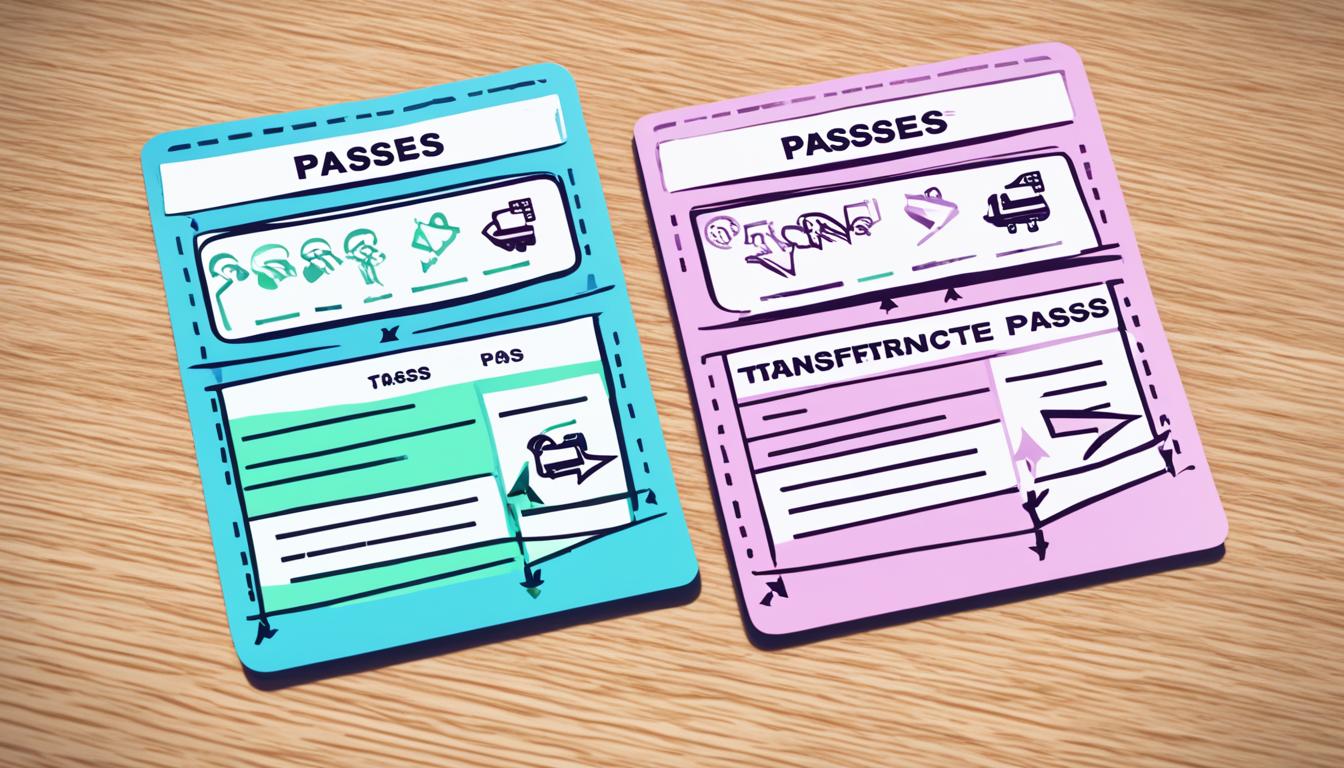Understanding blackout dates and restrictions is essential for event creators and travelers alike. These blackout dates are specific days when restrictions are imposed due to high demand, closures, or holiday rules. Whether you’re planning an event or embarking on a trip, being aware of blackout dates can make a significant difference in your experience.
For event planners, blackout dates can pose challenges when it comes to finding available venues, staff, and vendors. Prices may also increase during blackout dates due to the heightened demand. Moreover, blackout dates can create conflicts with other events happening simultaneously, leading to a competition for attendees. Therefore, it becomes crucial for event planners to plan ahead, communicate effectively with venues and vendors, and consider alternative options to ensure a successful event.
For travelers, blackout dates often mean limited access to travel rewards and discounts. These blackout dates vary by location, industry, and specific businesses. It is important to understand the blackout dates that apply to your travel plans and plan ahead to avoid any issues. By doing so, you can secure availability for accommodations and transportation, as well as navigate through high-demand periods with ease.
Key Takeaways:
- Blackout dates are specific days when event creators and travelers face restrictions due to high demand, closures, or holiday rules.
- Event planners need to be aware of blackout dates to mitigate challenges in finding venues, staff, and vendors, and avoid conflicts with other events.
- For travelers, blackout dates mean limited access to travel rewards and discounts, necessitating careful planning and consideration of alternative options.
What are Blackout Dates and How Do They Impact Travel?
Blackout dates are a significant factor in travel planning and can greatly impact travel experiences. These dates refer to specific days when travel rewards and special discounts cannot be used, leaving travelers facing restrictions and limited options. To understand the impact of blackout dates, it is important to grasp their meaning, how they are defined, and how they differ from other types of restrictions.
Blackout Dates Meaning: Blackout dates, in the context of travel, are specific dates during which certain benefits, such as travel rewards and special discounts, cannot be redeemed or used. Businesses in the travel and hospitality industry implement blackout dates to manage high-demand periods more efficiently.
Blackout Dates Definition: The definition of blackout dates varies depending on the industry and businesses involved. However, in travel, blackout dates are predetermined periods, such as holidays, weekends, or special events, during which travel rewards and discounts cannot be accessed or utilized.
Blackout Dates vs Restrictions: While blackout dates are a type of restriction, it’s important to differentiate them from other travel restrictions. Blackout dates are pre-established dates where specific benefits cannot be used, while other restrictions can be related to factors such as limited availability or eligibility requirements.
To provide a clearer understanding of blackout dates and their impact on travel, here is an illustrative example:
For instance, imagine planning a trip to a popular tourist destination during a peak season. You have accumulated travel rewards or have access to special discounts through loyalty programs. However, when you attempt to use these benefits, you find that they cannot be applied due to blackout dates. This means that you may have to pay a higher price for your accommodations, flights, or attractions, undermining the potential value of those rewards or discounts.
Blackout dates can vary by location, individual businesses, and even specific loyalty programs. They often coincide with high-demand periods when businesses anticipate increased customer traffic and aim to manage capacity and resources effectively. Identifying blackout dates for your travel plans can help you avoid disappointment and make appropriate arrangements.
By being well-informed about blackout dates, travelers can plan their trips more effectively, ensuring better utilization of rewards and discounts, and avoiding unexpected limitations. It’s crucial to consult the specific terms and policies of your chosen businesses, airlines, hotels, or attractions to be aware of any blackout dates that may affect your travel plans.
| Key Points | Benefits | Impact |
|---|---|---|
| Blackout Dates | Understanding their meaning and definition | Significantly affect travel plans and access to rewards |
| Identification | Awareness of specific blackout dates | Allows for better planning and avoidance of limitations |
| Travel Experience | Proper utilization of rewards and discounts | Enhanced travel experiences and cost savings |
Planning Events Around Blackout Dates
Event planners often encounter the challenge of scheduling events around blackout dates. These are specific dates when venues, staff, and vendors may be unavailable due to high demand or other restrictions. Navigating blackout dates requires careful planning and consideration to ensure the success of your event.
During blackout dates, prices for venues and services tend to increase due to the limited availability and high demand. This can impact your event budget and affect your ability to secure desired locations and resources. Being aware of blackout dates and their potential impact is crucial for event planners.
Additionally, blackout dates can lead to conflicts with other events happening simultaneously. Competing for attendees’ attention and attendance can pose challenges and affect the overall success of your event. It is important to stay informed about other events in your industry or region to avoid scheduling conflicts.
To overcome these obstacles and plan successful events during blackout dates, communication and early preparation are key. Engaging in proactive communication with venues and vendors can help you secure availability and negotiate favorable terms. Exploring alternative options such as less popular venues or working with different vendors can also increase your chances of success.
Planning ahead and being flexible are essential for event planners dealing with blackout dates.
“Blackout dates can present challenges, but with proper planning and open communication, event planners can overcome them and create memorable experiences.”
Furthermore, considering creative solutions such as hosting virtual components of your event or collaborating with other event organizers can help mitigate the impact of blackout dates while still providing valuable experiences for your attendees.
Below is a table summarizing key strategies to successfully plan events around blackout dates:
| Strategies for Planning Events Around Blackout Dates |
|---|
| 1. Engage in early communication with venues and vendors. |
| 2. Explore alternative options and less popular venues. |
| 3. Collaborate with other event organizers to share resources and minimize conflicts. |
| 4. Consider incorporating virtual components to increase accessibility. |
Successfully navigating blackout dates requires proactive planning, flexibility, and creativity.

Tips for Managing Blackout Dates
To navigate blackout dates successfully, it is essential to plan ahead. As event planners, we need to be proactive in our approach to avoid any disruptions. Here are some valuable tips to help you manage blackout dates effectively:
- Check local calendars: Stay informed about holidays, celebrations, and any other events that may lead to blackout dates. By being aware of these dates in advance, you can plan your events accordingly.
- Book venues and vendors early: The key to securing availability and negotiating better deals is to book your venues and vendors well in advance. Don’t wait until the last minute, as popular options tend to get booked quickly during blackout dates.
- Offer travel and accommodation packages: If blackout dates coincide with a popular destination or event, offer bundled travel and accommodation packages to attendees. This way, you can mitigate the impact of blackout dates and provide a convenient experience for your guests.
- Have backup plans: Always have contingency plans in place to handle unforeseen circumstances. Whether it’s a sudden change in venue availability or the need to modify your event schedule, having backup options will help you navigate blackout dates smoothly.
- Communicate with vendors: Maintain open lines of communication with your vendors throughout the planning process. Regularly check in with them to ensure they are aware of the blackout dates and any potential challenges that may arise. This way, you can address any issues promptly and avoid last-minute surprises.
By following these tips, you can effectively manage blackout dates and ensure the success of your events. Remember, preparation and proactive planning are key to overcoming any obstacles that may arise.
Strategies for Hosting Events on Blackout Dates
In some cases, event planners may find themselves in a situation where they need to host events on blackout dates and cannot alter their previous planning. To navigate this challenge successfully, we recommend employing the following strategies:
- Choose venues wisely: When selecting a venue for an event on a blackout date, opt for locations that are less likely to be fully booked. By choosing venues with ample availability, you can minimize the risk of facing obstacles due to high demand. Additionally, consider venues that are conveniently located near affordable accommodation options, ensuring that attendees can comfortably access the event.
- Utilize owned venues: If possible, host the event at a venue owned by the organizer. By leveraging your own venue, you can guarantee its availability regardless of blackout dates. This provides flexibility and peace of mind, allowing you to proceed with your planned event without concerns about potential scheduling conflicts.
- Virtual attendance and engaging activities: In scenarios where transportation and accommodations might be difficult or inaccessible during blackout dates, offer virtual attendance options to attendees. This allows individuals to participate remotely, ensuring that they can still be part of the event even if they cannot physically attend. Additionally, incorporate engaging activities during the event to create a dynamic virtual experience for participants.
- Explore neighboring towns or countries: If blackout dates pose significant challenges locally, consider moving the event to neighboring towns or countries with different blackout date schedules. By expanding your options geographically, you can avoid blackout date restrictions and ensure the successful execution of your event.
By implementing these strategies, event planners can overcome the limitations imposed by blackout dates and host successful events without compromising their original plans. Flexibility, creativity, and a thorough understanding of the situation are key to navigating blackout dates effectively.
| Advantages | Disadvantages |
|---|---|
| Guaranteed venue availability | Potential increase in travel and accommodation expenses for attendees |
| Diverse attendee options with virtual attendance | Possible reduction in the in-person event experience |
| Opportunity to explore new locations | Potential logistical challenges |
Implementing these strategies allows event planners to mitigate the impact of blackout dates and ensure a memorable and successful event experience for both in-person and virtual attendees.

Conclusion
Understanding blackout dates and restrictions is crucial for successful event planning and travel. By being aware of blackout dates, we can make informed decisions and plan ahead to secure venues, vendors, and resources. For travelers, knowing blackout dates can help avoid conflicts with other events and plan trips around high-demand periods.
While blackout dates can present challenges, proper preparation and communication can mitigate any potential issues. Event planners should make sure to check local calendars and book venues and vendors well in advance to avoid conflicts and secure availability. Offering travel and accommodation packages can also help attendees navigate blackout dates and enjoy the event without hassle.
For travelers, it is important to plan trips around blackout dates and be aware of any restrictions on travel rewards and discounts. By understanding the blackout dates policy of airlines and hotels, we can avoid disappointment and plan alternative travel arrangements if necessary.
In conclusion, by staying informed and prepared, we can navigate blackout dates and enjoy successful events and travel experiences. Understanding blackout dates and restrictions allows us to make the most of our planning efforts and ensure a smooth and enjoyable experience for all. So, whether you’re an event planner or a traveler, take the time to understand blackout dates and make your arrangements accordingly.
FAQ
What are blackout dates?
Blackout dates are specific days when travel rewards and special discounts cannot be used. They typically coincide with high-demand periods such as holidays, weekends, and special events.
How do blackout dates impact travel?
Blackout dates can significantly affect travel plans and access to rewards. They may limit the availability of discounts and make it challenging to secure accommodations during popular travel periods.
How can event planners work around blackout dates?
Event planners can work around blackout dates by checking local calendars, booking venues and vendors in advance, and offering travel and accommodation packages to mitigate the impact on attendees.
How can I avoid blackout dates?
To avoid blackout dates, it is recommended to plan your travel or event outside of high-demand periods, secure bookings in advance, and consider alternative options or locations with different blackout date schedules.
What strategies can be used to host events on blackout dates?
Strategies for hosting events on blackout dates include choosing less popular venues, providing virtual attendance options, engaging activities, and considering neighboring towns or countries with different blackout date schedules.
Why is it important to understand blackout dates and restrictions?
Understanding blackout dates and restrictions is crucial for successful travel planning and event organization. It helps you make informed decisions, secure necessary resources, and avoid conflicts with other events or limited access to discounts and rewards.




